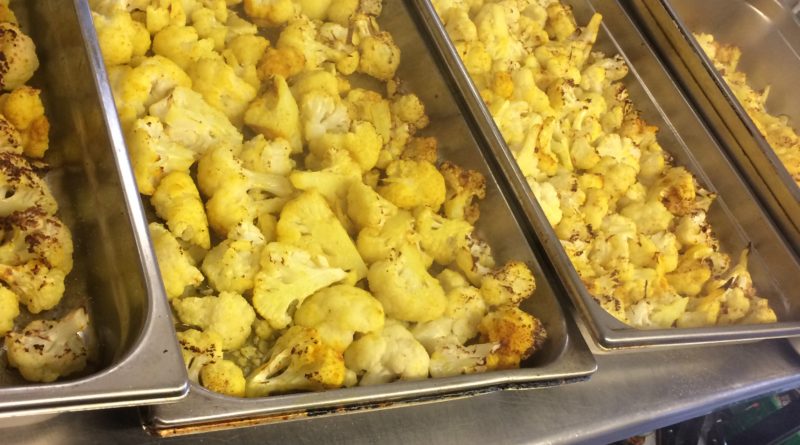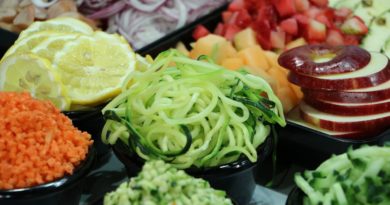Volunteering in Calais with Refugee Community Kitchen
Sandwiched between a train track and a busy main road, the refugee camp in the Dunkirk suburb of Grande-Synthe opened in March 2016 and is purpose built to accommodate around 2,500 people. Currently housing predominantly Kurds, the camp is made up of small wooden shelters with corrugated iron roofs plus a few communal and specialist areas (a health, a women’s and a children’s centre, for example) dotted around.
Some 35 kilometres away in the east of Calais, voluntary organisation Refugee Community Kitchen (RCK) shares a warehouse with Help Refugees and L’auberge de Migrants International. While L’auberge/Help Refugees work to supply displaced people with clothes and warmth, RCK delivers hot meals to the camp every lunchtime. All organisations rely solely on donations and volunteers.
For a few days this week, I became part of the RCK team in its fully functioning kitchen. Since the demolition of the Calais Jungle in November 2016 and the state-forced dispersal of the 10,000 or so people who lived there, RCK has changed its focus slightly. Whereby, until very recently, Calais Kitchens looked after the cold food, i.e. the stores of foodstuffs donated by the public – anything from dried pulses to coffee to cereals – RCK supplied the hot food to refugees in the camps of Calais and Dunkirk. This month Calais Kitchens has been subsumed by RCK, which now manages both the meals and the store. My job this week is to help prepare vegetables for stews, cooked on huge gas rings, and salads – stripping mint, chopping pumpkin, cubing peppers, peeling carrots, slicing tomatoes, celery, aubergines, leeks … We work in teams, getting to know each other, people from UK, USA, Australia, Germany, Italy, France. Dancers, Speech Therapists, Restaurant Workers, Teachers, Sound Engineers, Storytellers, PhD Students, Musicians. We came here maybe in some attempt to alleviate that sense of helplessness that so many of us in the West experience, knowing that, while most of us have so much, others have nothing, having fled persecution, violence, war, maybe having lost members of their family, so desperate that they have travelled thousands of miles in search of a safer home.
Once the food is cooked some of us stay at the toe-numbingly cold warehouse to clean and tidy the kitchen or to organise the stores. Others go to distribute the cooked food to a long queue of men, women and children at Grande-Synthe. Some of us travelled there earlier on to oversee the free shop where residents can obtain supplies to cook their own meals on woodstoves placed around the camp (the kilo upon kilo of sugar and lentils we spent one afternoon putting in easier-to-manage 500g bags are handed out to those in need the next – brilliant).
After the obligatory camp training (how to relate to and behave around those living on camp, mostly), I am permitted to place a lanyard over my head and go serve rice, chick pea and vegetable stews and salad. Living outside in this climate, these people must be deathly cold because it’s the coldest I might ever have been (really, does anywhere do fucking freezing to the marrow like this place?), although I can warm up at night in my heated air bnb room and soon I’ll be back in my cosy, dry home in England with my family, my friends a walk away. This hot food must be so welcome to people who don’t have that luxury.
The camp is calm, people are polite, some are chatty. One man asks me what the temperature is in England right now and I reply that it’s probably the same as here because it’s so close ( I didn’t realise that you can actually see the White Cliffs of Dover from the Port of Calais). Though it must feel half a world away to him.
I’m struck by how resilient people are. This isn’t the terrible squalor I was expecting and Grande-Synthe is a far cry from the old Jungle – it is apparently, the first in the area to meet UN standards – though no-one would want to live here. It’s cold, grey, cramped and (one hopes) very temporary.
I’m ultra privileged to have had this chance to have been a part of a team that welcomes so many people from different places, coming together to help fellow humans in need. I was looked after (endless tea and coffee) and made to feel valued. Thanks RCK, you really do. Thank you to everyone who financed my trip; your generosity is phenomenal and there remains £230 for the RCK kitty so that they can continue to do this sterling work.
Refugee Community Kitchen really needs short and long term volunteers. You can find out more on their website and Facebook page. Do it if you can! You’ll be glad you did ?




How awesome that you did this and I really liked reading your post. Thanks for your contribution to making this world a better place. ??????